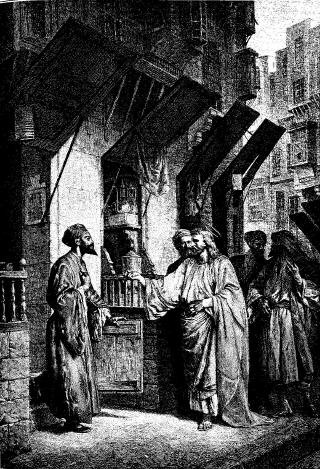Church Service Videos
You can watch our most recent sermons below, including Easter and the Ascension celebrations below or by going to the Video page from the top or right menu.
Breaking Religious Patterns

Matthew 9:9-17 “On hearing this, Jesus said, ‘It is not the healthy who need a doctor, but the sick. But go and learn what this means: ‘I desire mercy, not sacrifice.’ For I have not come to call the righteous, but sinners’” (Matthew 9:12-13). The call of Matthew illustration by Alexandre Bida Jesus’ purpose […]
The Favour of the King
The Favour of the King Like many others, I enjoy keeping up with the British royals. The birth of the newest prince in July was exciting, not only because of the happiness of the young parents, but also because of all the history behind that little boy. As I’ve read about kings and their courts […]
